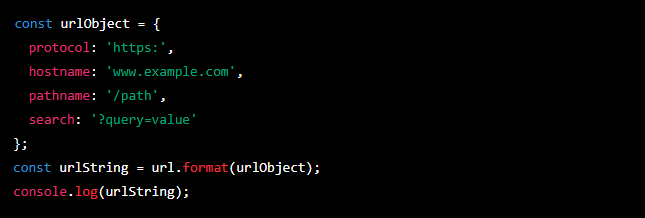

Node.js is a powerful JavaScript runtime that allows developers to build server-side applications using JavaScript. One of the most important modules in Node.js is the URL module, which provides a set of functions for working with URLs. In this tutorial, we will take a look at the basics of the Node.js URL module and how to use it in your applications.
The first step in using the Node.js URL module is to require it in your application. You can do this by adding the following line of code at the top of your file:

Once you have the URL module imported, you can start using its functions to work with URLs. One of the most basic functions is the parse() function, which allows you to parse a URL into its individual components. For example, the following code will parse a URL and return an object with the various components of the URL:

Another useful function is the format() function, which allows you to build a URL from its individual components. For example, you can use the following code to build a URL from an object:

The Node.js URL module also includes a number of other functions for working with URLs, such as resolve() for resolving relative URLs, domainToASCII() for converting a domain name to ASCII, and toString() for converting a URL object to a string. You can explore these functions in the Node.js documentation.
Overall, the Node.js URL module provides a powerful set of tools for working with URLs in your server-side applications. With its easy-to-use functions and intuitive API, it can help you simplify the process of working with URLs and make your code more readable and maintainable.